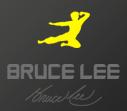Indianapolis, Ind. — Copyright lawyers for LeeWay Media Group, LLC of Los Angeles, Calif. filed a declaratory judgment suit against Laurence Joachim of New York, N.Y. and Los Angeles, Calif. and Trans-National Film Corporation of New York in a copyright dispute over  the use of portions of Bruce Lee’s 1965 screen test in the 2012 documentary “I Am Bruce Lee.”
the use of portions of Bruce Lee’s 1965 screen test in the 2012 documentary “I Am Bruce Lee.”
Bruce Lee, widely considered to have been one of the most influential martial artists of all time, was also an actor and filmmaker. He is most famous for his roles in the films The Big Boss (1971), Fist of Fury (1972), Way of the Dragon (1972), Enter the Dragon (1973) and The Game of Death (1978). Lee was the first celebrity to be cast in major motion pictures after his death.
Lee completed his first Hollywood screen test in or about 1965. It is over eight minutes long and, according to LeeWay Media, has been used freely in many productions over the intervening decades. It is allegedly available for viewing on such sites as youtube.com.
A documentary about Lee entitled I Am Bruce Lee was produced by LeeWay Media, a company founded by Lee’s daughter Shannon Lee. It was released and aired on Spike TV in early 2012. Approximately 91 seconds of the 1965 screen test were included in the documentary. Prior to including the material from the screen test, LeeWay Media searched to determine whether the screen test was copyrighted. It concluded that the material was in the public domain.
LeeWay Media was contacted in July 2012 by Joachim, who claimed to own the copyright to the screen-test footage. He asserted that his copyright had been infringed. Negotiations ensued, but the dispute was not resolved. Among other issues, LeeWay Media asserted that it had requested but not received any relevant copyright-ownership documentation from Joachim.
In May 2013, Joachim informed LeeWay Media that, unless a six-figure settlement fee was paid, he would sue for violations of federal copyright law; federal law for unfair competition; and Indiana and California state law for unfair competition. LeeWay Media instead filed suit against Joachim and Trans-National Film under the Declaratory Judgment Act, asking the court to declare, inter alia, that LeeWay had not committed copyright infringement.
The complaint asks the court for the following:
· Declaration of No Valid Copyright
· Declaration of No Standing
· Declaration of No Copyright Infringement
· Declaration of No Unfair Competition
LeeWay Media also asks for attorneys’ fees and costs; and for a declaration that the claim of copyright infringement and unfair competition are in bad faith and, as such, should be sanctioned.
Practice Tip: In 1994, the Supreme Court addressed the issue of fee shifting in copyright cases in Fogerty v. Fantasy, Inc. Since then, the federal circuit courts have taken a variety of approaches to Fogerty and its statutory underpinning, 17 U.S.C. § 505. The Seventh Circuit is among the most willing of the circuits to shift fees, stating in Riviera Distributors, Inc. v. Jones, “Since Fogerty we have held that the prevailing party in copyright litigation is presumptively entitled to reimbursement of its attorneys’ fees.” This, perhaps, provides some insight into the rationale for a California plaintiff to sue citizens of California and New York in an Indiana court.
This case has been assigned to The Honorable Judge Jane E. Magnus-Stinson and Magistrate Judge Tim A. Baker in the Southern District of Indiana, and assigned Case No. 1:13-cv-0822-JMS-TAB.
Further Information about the case is as follows:
LEEWAY MEDIA GROUP, LLC v. JOACHIM et al
Filed: May 20, 2013 as 1:2013cv00822 Updated: May 27, 2013 06:01:04
Plaintiff: LEEWAY MEDIA GROUP, LLC
Defendants: LAURENCE JOACHIM and TRANS-NATIONAL FILM CORPORATION
Cause Of Action: Copyright Infringement
Court: Seventh Circuit > Indiana > Southern District Court
Type: Intellectual Property > Copyrights
 Indiana Intellectual Property Law News
Indiana Intellectual Property Law News

